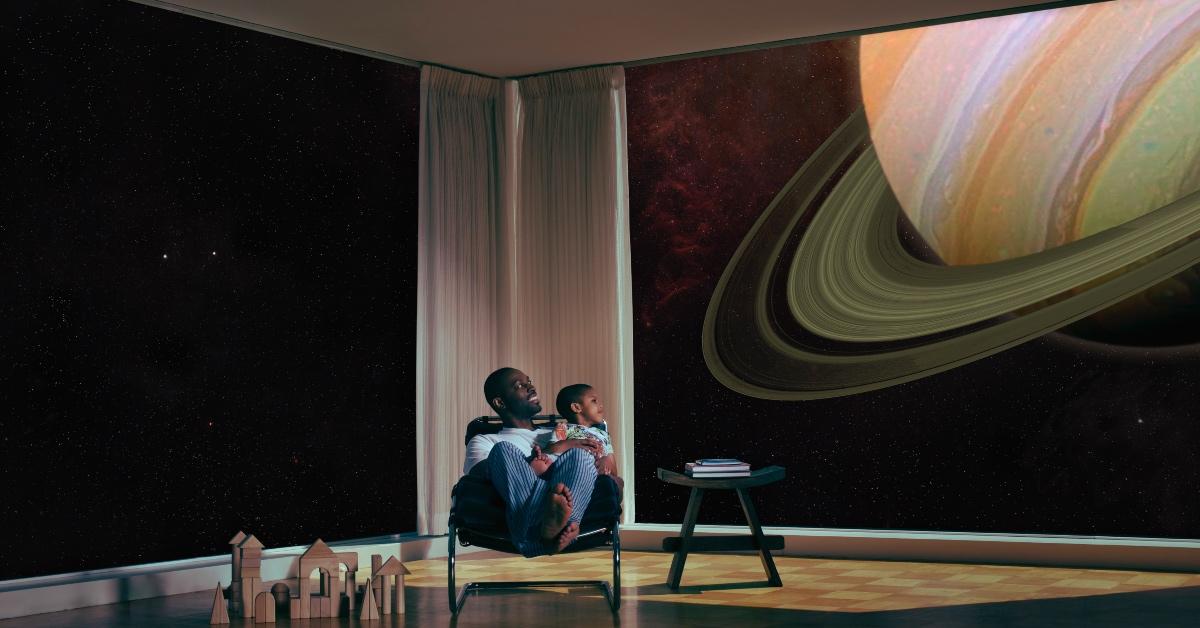Robert Lanza and Biocentrism: Do Time and Space Really Only Exist in Our Minds?
Published June 6 2023, 5:39 p.m. ET

The universe is very complex — it can be hard to wrap our minds around concepts like time and space, especially if we think about it a little bit too long. One scientist even has a theory that our consciousness creates the universe.
The theory that our minds create time and space is known as biocentrism. However, not all physicists are on board with the idea; many disagree. Keep reading to learn more about why some scientists debunk biocentrism, or believe that it's not credible.
What is biocentrism?

According to Robert Lanza’s theory of biocentrism, it’s our consciousness that creates the universe, rather than the universe creating our consciousness. This would mean that concepts like time and space only exist in our minds.
The scientist first proposed the theory in 2007, and it was met with both skepticism and intrigue. On his website, Lanza explained that he believes that our reality is reliant on biology, a concept that some might find confusing at first. Could biocentrism give us our most sought-after answers to all of our scientific questions?

Biocentrism is a combination of both physics and biology, which adds observers into the picture — it’s meant to be an overall explanation of our world, aka, a theory of everything. Lanza thinks that other theories of the universe fail to incorporate one aspect: The role of humans.
He believes that, despite all that scientists have discovered about the universe, they’ve managed to learn nothing about consciousness — which is an underlying detail of all other factors and processes, according to an article Lanza wrote for NBC News regarding biocentrism. He finds our widely used models to be unsatisfactory.

To explain his ideas further, Lanza gave an example of an experiment showing how much the observer creates and impacts reality.
In the experiment, it was proven that if someone “watches” a subatomic particle or light pass through a barrier, it will create “solid-looking hits.” When particles aren’t observed, it will show “the behavior of waves that allow it pass through both holes at the same time.” This is to say that the behavior of subatomic particles will differ depending on whether or not they are being observed.
Lanza often explains this phenomena through the example of a kitchen. Logically, we would assume that our kitchen is always present, including all of the different objects in it — it doesn’t matter if we are in the kitchen or not. All of the shapes and colors that make up your kitchen are seen due to the photons of light and the functions of your brain working to identify them.
However, on it’s own, the kitchen is absent of these factors — there’s no light, color, or visual characteristics.
Lanza sums up this experience: “So while you may think that the kitchen as you remember it was “there” in your absence, the unquestionable reality is that nothing remotely resembling what you can imagine could be present when a consciousness is not interacting.”
Why do people debunk biocentrism?
While some compare Lanza to Einstein, others are not so generous. It’s safe to say that the theory of biocentrism isn’t widely accepted in the scientific community, despite its attention and popularity.
For the most part, scientists are against the theory because it lacks empirical evidence — some even consider it speculative. One flaw in particular is figuring out how to determine if the idea of “observer time” is real, Wired explained.
Another common criticism of biocentrism is that it’s unfalsifiable. This means that you can’t prove that something doesn’t exist if you’re not given the chance to observe it to prove that it did or did not exist in the first place.
No matter what you believe, science is always changing and we are always learning new things about our universe. With a little bit more research, biocentrism could gain more confidence from the scientific community.